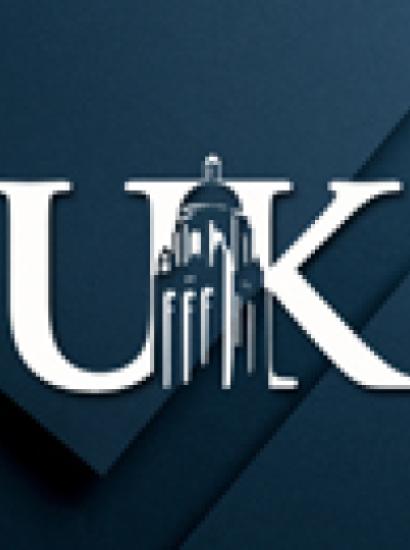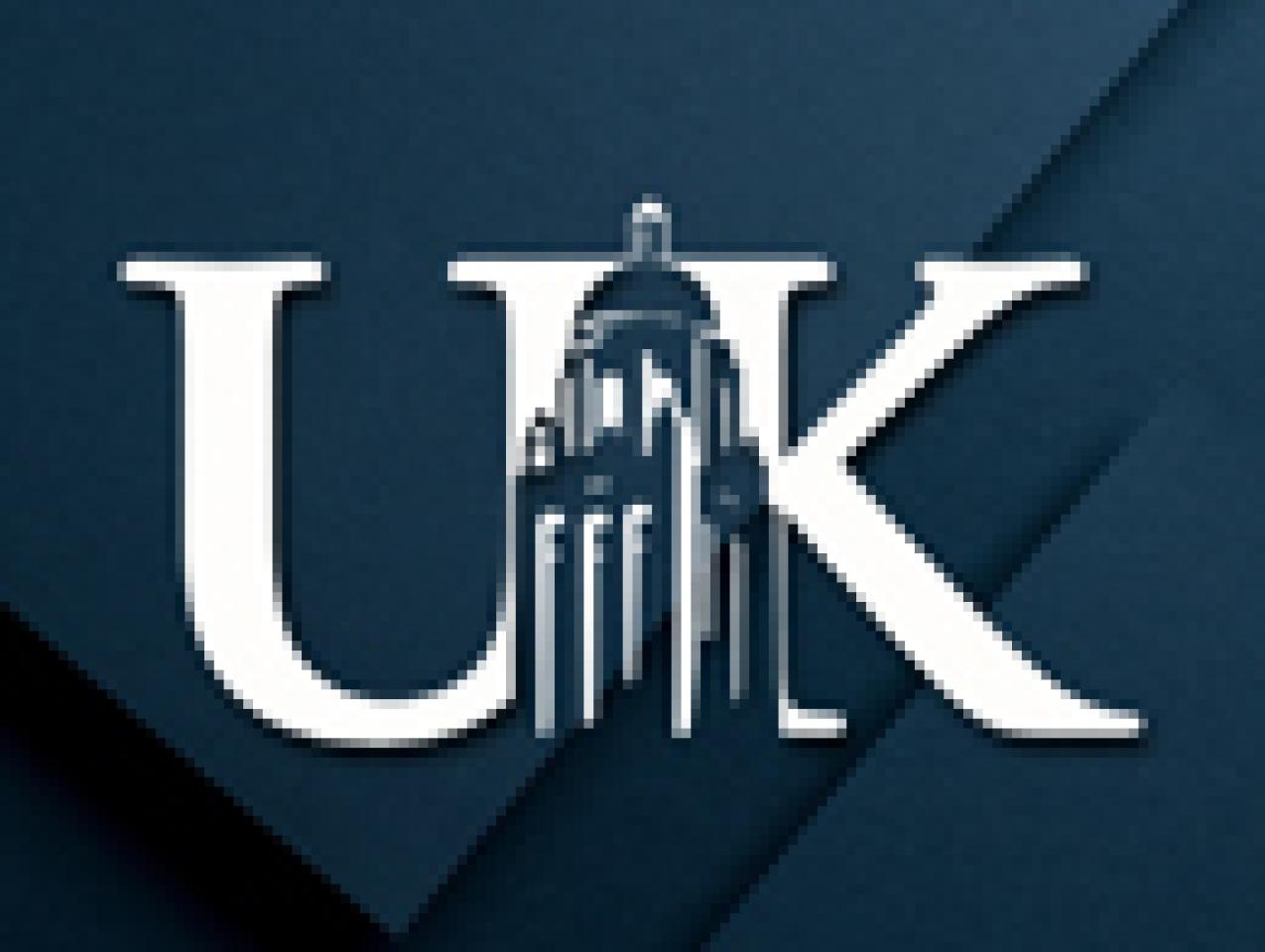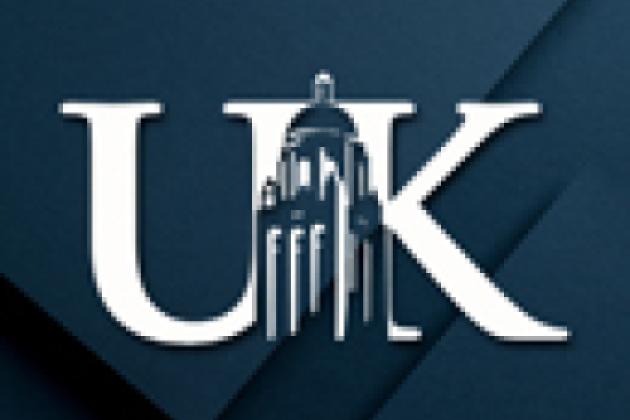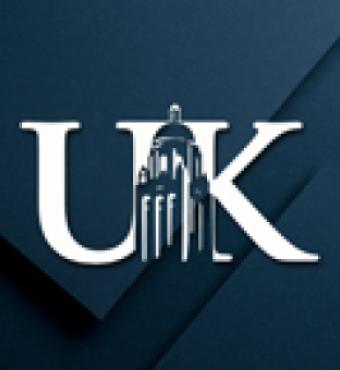- Law & Policy
- Politics, Institutions, and Public Opinion
To watch the video click here.
TRANSCRIPT ONLY
Peter Robinson: Born in mainland China, Jimmy Lai fled as a child reaching Hong Kong as a stowaway on a fishing boat. At the age of 12 he went to work in a garment factory for seven dollars a month. By the age of 27 he had purchased his own factory. By his mid 30s he had created Giordano making it an international brand. Then came the 1989 Tienanmen Massacre. Mr. Lai sold his stake in Giordano founding the pro democracy Next Magazine in 1990 and the Apple Daily, again a pro democracy outlet in 1995. Since the protests began in Hong Kong this past summer, Mr. Lai has been on the forefront of the movement, literally on the forefront marching in one protest after another at the very front where the authorities can see him. Jimmy Lai, welcome.
Jimmy Lai: Thank you.
Peter Robinson: Before we begin our conversation Jimmy would like to read a brief statement.
Jimmy Lai: Thank you. I'm especially grateful for the invitation to speak at Hoover because this was the international home of one of my heroes, Milton Friedman. I once had the honor of taking Milton to China. I had the even greater honor of being his friend. And if he were alive today I have no doubt he would be standing in solidarity with my fellow citizens of Hong Kong who are just fighting to keep the way of life promised us when we were handed back to China. Today, the Trump administration has its own hands full with China. The disagreements range from human right, trade, to national security to Hong Kong. Because of it's sheer size China gets away with behavior the world would never tolerate from any other country. My simple message tonight is that bad behavior must be confronted, not appeased. And that you in the West need to have confidence in the superiority of your own system. China is never embarrassed to assert it's own values even though these values are rooted in perhaps the most horrible Western export, Marxism. America needs to have the same confidence in it's values and it's own moral authority. America has a vital interest in Hong Kong. Washington simply cannot allow China to tell the US we want your money but you have no say in what is going on. When it comes to promoting Western values for China Hong Kong is the place where America's model and her interests meet. There are many more things we can discuss but I'm going to end it here so Peter and I can get to our conversation. If I could leave America with one thought, it would be this. Do not underestimate your moral strength and promote your values instead of apologizing for them. Especially when you deal with China. Thank you.
Peter Robinson: Jimmy there's no where to go but down.
Jimmy Lai: Yes, thank you.
Peter Robinson: Jimmy, two quotations. Number one, the late foreign policy expert and Hoover fellow Harry Rowen writing in 1996, quote, "When will China become a democracy? "The answer is around the year 2015. "This prediction is based on China's impressive "economic growth which in turn fits the way freedom "has grown elsewhere in Asia." Close quote. The second quotation, Jimmy Lai, writing in the "Wall Street Journal" earlier this month. "The West hoped that open trade would encourage an open society. Under President Xi's rule that hope has died." Jimmy, China was supposed to become a democracy.
Jimmy Lai: Right.
Peter Robinson: Instead President Xi is tightening central control. What went wrong?
Jimmy Lai: Well, I think even the West went wrong for the last 25 years. Hoping that when China is reached they will become part of the world community. Instead, they become a very manipulant competitors. This whole, wishful thinking doesn't always work.
Peter Robinson: Were you onto them all along? Did you feel during these last 25 years when the West was so hopeful, did you feel throughout that period that we were making a mistake? Or were you as surprised as we were?
Jimmy Lai: Well, I think I made a mistake also because after the June 4th massacre I went into the media business thinking that information is freedom. So if I go into the media business, deliver information I'm delivering freedom. That would be a wonderful business for a young person. So, you know, I was wrong. I've been wrong.
Peter Robinson: The protests. Protests in Hong Kong began last summer when the chief executive Carrie Lam proposed legislation that would have allowed extraditions from Hong Kong to mainland China. By mid June some two million people, this is a staggering thing, more than a quarter of the entire population of Hong Kong had taken to the streets. Now, the legislation seemed reasonable. There was a young man who committed or was accused of committing a murder in Taiwan who fled to Hong Kong and there was no way to deal with him. And so the chief executive of Hong Kong, Carrie Lam, said "we simply need to be able "to extradite criminals to the mainland "in order to prosecute justice."
Jimmy Lai: Well, before the extradition bill China has been encroaching on our freedom by DQ-ing, disqualifying some of the people for election for the legislate council and they arrest some of the young people as political prisoners. And many, many of the things they have done as soon as China wanted to take away our freedom and when they actually imposed, or tried to impose the extradition bill we all knew that is the fight of last straw. We have to fight. Otherwise we will lose everything. If we lose freedom we will lose everything. And that's why the first time the younger generation who has been complaining of, we old generation we have been fighting for freedom for 30 years. They ask, what have you done, what have we got? We've got nothing. So how about now, we try it our way. And that's why they try out their way confronting the police and we see some of the violence. But even that, the younger generation and the older generation have never been so united in fighting for our home, Hong Kong.
Peter Robinson: As now. A brief background. Hong Kong is for 150 years a British colony. Returned to Chinese control in 1997. And in a treaty with the United Kingdom China promised Hong Kong 50 years of substantial autonomy. Freedom of speech, that includes freedom of speech, freedom of assembly, and an independent legal system and so forth. And prior to the protests how well was China doing in keeping those commitments?
Jimmy Lai: I mean for the first 10 years I was very surprised that they kept the promise. But slowly, slowly they are taking away and then amend the basic law and try to encroach on our freedoms and the rule of law and all that. And that we know. We can't wait for the 50 years. The one country two system is gonna end very soon.
Peter Robinson: The chief executive withdrew that extradition legislation in September. Then huge pro, and September, I recall reading in September predictions that the students would go back, they were students many of them, they'd go back to school. She withdraws the extradition legislation. The students go back to school and the massive protests have ended but the protests have continued and in fact just this morning there was a protest of 350,000 in Kowloon. 350,000 is not two million but is still one citizen in every 20.
Jimmy Lai: Right.
Peter Robinson: Another astonishing figure.
Jimmy Lai: Well it's 300,000 just because the government did not give us the permit to do so. That's why some of the people don't want to demonstrate illegally.
Peter Robinson: But Jimmy what do the protesters want now? The extradition bill, legislation has been withdrawn. Why are they continuing to protest?
Jimmy Lai: Well, because it's very obvious there are Hong Kong people that China is determined to take away our freedom, our rule of law. And we just have to fight. We can't allow that. We lose our freedom, we lose everything. And that's why some of the young kids they were born after the British colonial pass. Are determined to fight to die. You know, they are so determined. And a lot of people ask me, why these young kids? They never lived in the Western value because in the colonial time we were living in the British colonial time that was the British law and all that, you know. Why they were so determined to fight for the freedom? It's very simple because the British did not give us democracy. Democracy is only the means to the end. The end is freedom. But British gave us odd institutions of freedom. The rule of law, the human right, the free speech, the freedom of association, the free market. All that institutions we had and we still have. After the British left and that's why those kids who live in this institutional environment is so used to freedom. And when that freedom is being threatened they know that, they've got to fight. And they are, a lot of them are willing to die to fight for it. And that's why this spirit of martyrdom has moved and touched all the people. And that's why the Hong Kong people at this time are so united in fighting this war.
Peter Robinson: Jimmy, let me ask you about the nature of the mainland. Of the People's Republic of China. On the one hand President Xi heads the Chinese Communist Party. On the other hand, listen to a quotation from China scholar Gordon Chang. "President Xi's signature concept "is the Chinese Dream which evokes restoration "of the imperial system." Communism which is committed, at least formally, to world wide revolution versus the old Chinese imperial system which concerned itself with China and it's immediate neighbors only. So which is it? Is President Xi a genuine and committed communist or a Chinese nationalist?
Jimmy Lai: I think the guy is feudal, a feudal communist. You know the guy can so the term limit and make himself president for life which is the emperor. He just wants to get China back to the Mao's time. I think this is crazy. We are in online world and I think you cannot turn the wheel of history back to Mao's time, to the feudal time.
Peter Robinson: All right, let me quote you again. This is something you've written. "Mr. Xi is arguably the most absolute dictator "in human history, more absolute than Mao "because Xi has artificial intelligence controlling devices." Explain that for us.
Jimmy Lai: Well, now in China the people's life is like an open book to the government. They have facial recognition devices and it's AI enabled. And where you go, because they recognize you, they have those TVs and what you talk because your iPhone, I mean your smart phone has an app, they know what you're talking about, who are you talking to. You know, what you're talking on the phone. If you've done something wrong you can't buy insurance, you can't have a bank account, you can't buy train tickets or air tickets. You can almost do nothing. And I don't think any emperor in the past, any dictator in the past had such control on people. You just can't do anything wrong. You have to do everything according to the government's rule. And they keep very close eye on you. No dictator can have such a close scrutiny on people. It's impossible. That's why he's the most absolute dictator but at the same time there's a danger there also because with this absolute dictatorship he's still using Mao's system of control. He doesn't have the new control with this absolute dictatorship. So a system to support this absolute dictatorship needs to go through evolution of trial and error. He'll never has this chance to do that. So I think something is gonna go wrong because the people never had such suppression. I'm sure people's resentment and resistance is being suppressed just waiting for the right moment to trigger to explode. Like economic down turn or whatever. It's impossible that you can have such absolute control on people without the good system to support it.
Peter Robinson: All right, you just mentioned the possibility of an economic down turn.
Jimmy Lai: Yup.
Peter Robinson: We all used to believe, your friend Milton Friedman taught us to believe that political and economic freedom are distinct but they tend to go together. But that was before artificial intelligence. Is it possible that President Xi, that the current regime in China can use artificial intelligence, this new development in technology to retain political control while at the same time permitting enough freedom in the markets to sustain economic growth? Have they invented a new system that even Milton Friedman would have been surprised by?
Jimmy Lai: I don't believe so because capitalism means that government have no role or little role in the market. And if you have such a control in the market you just don't have capitalism. You just don't have free trade. Whatever they are doing now, even successful, is just for the short term. Long term you need the freedom of the people, of the participants in the market to have free trade. You can't have the government of such a strong control in the market and yet have freedom of the market.
Peter Robinson: And that is Hong Kong's position. Hong Kong, seven million people.
Jimmy Lai: Yup.
Peter Robinson: The People's Republic of China, 1.4 billion.
Jimmy Lai: Right.
Peter Robinson: If you'll forgive me, you are a mouse defying a dragon.
Jimmy Lai: Right.
Peter Robinson: But that's why they need you. Because Hong Kong has the rule of law. Most foreign investment in China goes through Hong Kong.
Jimmy Lai: Right.
Peter Robinson: Stock, most Chinese companies that raise money in the stock market use the Hong Kong stock market.
Jimmy Lai: Right.
Peter Robinson: So there is a sense in which small as you are, you have certain strengths. They need the freedom and the rule of law that you represent, is that correct or am I being too hopeful?
Jimmy Lai: Correct.
Peter Robinson: That is correct?
Jimmy Lai: Yep, you know Shanghai has the, is financial market for 40 years. Still today it cannot replace Hong Kong. Just because Hong Kong first have the rule of law which creates a trust institutions. Without the trust institutions you cannot have instant trade, financial trade. And what Hong Kong is, is a very free place just because the British had a very small government. The greatest guarantee of people's freedom is that the limitation of the government's power and Hong Kong has that. Hong Kong had very small government. We had very low tax, 17%. All of you would be very envious. 17%, it's a very free place and that's why people who have lived there benefit from the free market are so determined now to fight for our freedom.
Peter Robinson: Jimmy what, still on China, still on mainland China. What does mainland China want? If President Xi could achieve the world that he wanted what would it look like and what position in that world would the United States occupy?
Jimmy Lai: Well, I think they just want to dominate the world. That's the way the Chinese used to think. They're the center of the world and they want to dominate the world and this is what Xi thinks and that's why he's building the Belt and Road and all that. I think this is the Chinese dream but it's just a dream.
Peter Robinson: You know, in this country among academics in this country the debate is whether Xi fundamentally hues to the old Chinese concern which is China and it's immediate neighbors only or whether he really is concerned with global domination of some kind. And your argument would be that if Xi had the world he wanted, he would be the top man in the world.
Jimmy Lai: Yeah, definitely that's what they want, yeah.
Peter Robinson: All right, and what position would Hong Kong, if Xi could have, if Xi could get on the phone to you tonight and give you directions, directives and say Jimmy here's what we're gonna do with Hong Kong. What would he say? What does he want for Hong Kong?
Jimmy Lai: He just want Hong Kong to be the same as any city in China. They don't want Hong Kong to be free. They just can't tolerate a free city. Which doesn't follow the same values in China and this is a thorn in their eyes.
Peter Robinson: Hong Kong and the United States, Jimmy. Jimmy Lai, I'm quoting you. "President Trump understands the Chinese "like no president has understood them. "He's very good at dealing with gangsters." Would you care to elaborate, explain that statement.
Jimmy Lai: Well, I think they're the biggest gangsters. That's why they know how to deal with gangsters. They don't follow rules. A lot of people wonder why China cannot follow rules. Any competition has a game rule. Commercial competition has a rule that the Chinese never follow. Just because they never look at commercial competition as competition. They look at it as warfare. It's never competition for them. It's always warfare for them. Whatever they do is warfare because as a dictator the outside world is always the potential enemy. That's the way they look at the world.
Peter Robinson: Jimmy Lai, I'm quoting you once again. "The hardships of the trade war to America "are real but they are also short term. "The question is whether America is willing "to endure short term sacrifice for long term peace." Close quote. So you are a proponent of the Trump administration's attempt to push back against China by using trade.
Jimmy Lai: Right, right.
Peter Robinson: The tariffs don't bother you?
Jimmy Lai: Right, no. I think the right thing that Trump administration is doing is to push China for restructuring. You know, structural change. If they don't change, if they don't follow the rules, if they don't buy into the Western values the conflict of values we will create mayhems, conflicts in the world. The world will never have peace. We better endure the short term sacrifice for the long term peace. Don't just have a deal with now having China change the behavior of dealing with the world. Otherwise when they become the biggest economy we have to confront the biggest enemy. We will have to endure the way of doing business the same that they treat the NBA, recently. You know, we will have constantly have to endure this kind of bullying. It's time for us to confront them. To make sure that they become part of the world community, they become trust partner of the free market and reliable neighbor of the world community. Otherwise the world will not have peace. We have to stand firm.
Peter Robinson: Jimmy, you've just mentioned the NBA. For my wife who may not have followed this. Actually, she did follow it, earlier this month Daryl Morey, General Manager of Houston Rockets tweeted a message in support of the democracy protesters in Hong Kong. The Chinese government denounced him and Morey was subjected to trolling suffering tens of thousands of pro China tweets. Then just last week Lebron James, one of the greatest basketball players ever, entered the controversy. He said quote, "I just think that when you're "misinformed you never know the ramifications "that could happen, not only for the league "but for all of us in America "and for people in China as well." So you have Morey sticking up for Hong Kong and Lebron James slapping him down because of course, the NBA has investments to protect. And my question for you is, doesn't Lebron James have a point? Isn't business, business? And isn't it right for business to protect it's investments?
Jimmy Lai: Well, when business is business that's why you get bullied by China. NBA is a very good example. NBA is a household icon. This NBA episode actually has gone down to people's heart and soul, of the American people. They feel that they are being bullied. Because NBA's such a big part of the identity. It's just a cultural icon. So eventually, you know China definitely will not learn from this. They will always bully people. If you want to come to make money in my country you have to follow my rule. Which is you have to lay down your moral integrity and dignity to do business with us. I think this will be felt by the American people. I can see the future as a parallel to the environmental problems. Companies who pollute the environment the customer will refrain from buying goods from them. And that's why a lot of company, they change from polybag to paperback. And in future any company who bow down to China just for profit, by laying down the moral authority and integrity, or dignity that will hurt the dignity of American people. And the consumer will refrain from buying goods from them. I think this will be the greatest pressure. The American people can impose on China. And this I think will be coming.
Peter Robinson: The nature of liberty. Chinese with whom I've spoken over the last couple of months make a couple of observations about Hong Kong. Here's one, when Hong Kong was returned to Chinese control in 1997 the economy of Hong Kong represent 1/5th of the entire economy of China.
Jimmy Lai: Right.
Peter Robinson: And today that figure is only 3%.
Jimmy Lai: Well, less than that, yeah.
Peter Robinson: Less than that?
Jimmy Lai: Yeah.
Peter Robinson: Less than that. That's the first observation. Here's the second observation. Young people in Hong Kong have been priced out of their own housing market in large part because investors, people have made money in the mainland. And now they're buying up properties in Hong Kong.
Jimmy Lai: Right.
Peter Robinson: In other words, so my friends who grew up in the mainland tell me, these claims, this protest in favor of democracy. The desire for democracy is only superficial. What really drives this situation is economics. Questions of material well being. You've got a bunch of kids in Hong Kong who by Chinese standards are already very wealthy, and they're whining effectively because their future is going to be more difficult than their parent's future. And Jimmy Lai says what to that?
Jimmy Lai: Well, this is the way China looks at Hong Kong because they look at Hong Kong like a commercial city. If they make money, have a good life, that's all they need. Those people have a body without a soul. Yes, true. The real estate price is jacked up very high in Hong Kong. Because you have a lot of rich Chinese who come to Hong Kong to buy real estate. When they buy real estate they're not just buying a place to stay. They are buying the rule of law, the freedom, the human right, the free press, all that free institutional value they're buying. Because they're willing to pay so much for this value they don't mind paying very high price for the real estate. They are paying so much for the value of freedom at the same time they think that we don't need it. Is this contradictory? You know, they think that we are just dogs. Enough to eat, have a good life, and that's it. No. Not just hardware, we need the software also. We need the institutional freedom. We need to be free, we need meaning in life. We need dignity as a human. It's not just food and money.
Peter Robinson: Jimmy we are often told, we in this country, are often told democracy, liberty, freedom of speech, freedom of religion, those are Western values.
Jimmy Lai: Yes.
Peter Robinson: China has a different civilization. A great civilization, an ancient civilization. And the values are different. The conception of human dignity is different. And you argue what? That Western values are in fact universal? You can be a good Chinese and protest in favor of democracy and freedom of speech?
Jimmy Lai: Well, modality is universal. The modern technology, the modern institution, the modern way of market, the modern way of life. All that is irreversible. All that is based on the Western values. If China insists on asserting its values in this world built on Western values, China is gonna create trouble for this world. China, a China that does not respect the right of its people will not respect the right of its neighbors. That is the trouble we are facing. We must make China part of us. If China has to assert its values over us we will have constant problems. The world will not have peace because the world is built on Western values not Chinese values. And China cannot be on an island by itself. They will interfere in the way into our life. By the sheer size of its economy.
Peter Robinson: On the question of values, Jimmy, can you picture a century from now. Let's for one moment, let's remove ourselves from the current controversy, so let's say a century from now. Could China remain China? Could it retain it's distinctive culture as a democracy? Could it embrace free markets and remain true to Chinese conceptions of dignity and justice? Could, let's say, communism obviously not. But Confucianism, could that fit with Western notions of freedom of speech?
Jimmy Lai: I think Confucianism can, yes.
Peter Robinson: It can.
Jimmy Lai: Yeah, but not the Marxism.
Peter Robinson: Not Marxism?
Jimmy Lai: Not Marxism, you know, because I'm sure China will have to change. China just can't be an island.
Peter Robinson: All right, so, which leads me to. How will this end? China itself, once again two quotations, Jimmy. Arthur Waldron who's a China historian at the University of Pennsylvania. Quote, "In Chinese history disintegration begins at the limits of empire. China's disintegration is now underway." Closed quote. Here's the second quotation. Yvonne Chiu of the US Naval War College. "It is too optimistic to start looking toward "the end of China's empire. "Far too many people support the trade off of civil liberties for economic growth." Closed quote. Your protest movement in Hong Kong has already, as I understand it, buoyed the poll standing of the independence forces in Taiwan. Where does this go?
Jimmy Lai: You mean the movement in Hong Kong?
Peter Robinson: I mean can China tolerate this? Is China beginning to see something unravel or are you merely a nuisance for them?
Jimmy Lai: I think one day China has to unravel. That's why we are fighting. We think that our fight has the modal resilience of the world. They're sympathetic about what we are fighting because we are fighting, they share value with China, with the US and the West. And if we persist the greater the world has pressure on China and especially now when China the economy is not doing well. And they are facing a lot of problems. They're so afraid of their people emulating Hong Kong and go on the street. They might give us what we want just to appease us and stop this demonstration. Because if they are in crisis they need to do something. And I'm sure that their situation is much worse than it pretends.
Peter Robinson: So you're hopeful, you're genuinely hopeful?
Jimmy Lai: Yes, we, yeah.
Peter Robinson: All right. That's China and Hong Kong. What about Jimmy Lai? In 2009 you were the target of an assassination attempt. In 2015 your house was fire bombed. Revenues at your publications have dropped in large measure because the Chinese have pressured companies to avoid advertising with you. Just a couple of months ago your house was fire bombed again. You are tailed wherever you go. Members of your family are harassed. The opposition put up a billboard, posters, I've seen posters showing pictures of your children so that the pro mainland forces can recognize members of the Lai family when they see them in the street in Hong Kong.
Jimmy Lai: Yeah.
Peter Robinson: Now, after the communists consolidated their power in the early 1950s your father got out of mainland China.
Jimmy Lai: Right.
Peter Robinson: Under what circumstances does Jimmy Lai get out of Hong Kong?
Jimmy Lai: I will not get out of Hong Kong. Because I'm one of the trouble makers. I can't make the trouble and then go. I cannot do that. Milton Friedman once said, "there's no free lunches." If I take the stand, I stand. The way that they treat me, whatever they harass me and all that. That's just lunches. You know, I come to war to pay for it. I have long determined not to be frightened by fear. Because even if I am very careful, very cautious, if they want to take my life. If they want to harass my wife, my family, all that, we cannot, I cannot stop it. So I've since long just tell myself, don't think about the consequences. Do what is right. If I always think, if I say this, what is the consequences? If I do this, what's the consequences? I can do nothing. My life is finished. So, I long, very long ago I just decided, no. I'm not going to think about this. I just do what's right and go on my life.
Peter Robinson: Last.
Jimmy Lai: Thank you.
Peter Robinson: Last question. I'm quoting you one more time. This is something you wrote in and you published in the "Wall Street Journal." "We," we in Hong Kong, "We are not asking you Americans "to send the Seventh Fleet to take on China. "The American flags you see at our rallies "are our way of saying that we share your values." A moment ago we discussed President Trump. Last question, what would you say, what would you ask of the American people?
Jimmy Lai: Just give us moral support. Make us your narrative in daily life, in your political conversations. Just give pressure to China. We need your help.
Peter Robinson: Thank you.
Jimmy Lai: Thank you.
Jimmy Lai: I don't know. Are you thinking what I'm thinking? What I'm thinking is, it must have felt something like this to spend time with John Adams or Patrick Henry. Ladies and gentlemen please join me in thanking Jimmy Lai.
Jimmy Lai: Thank you. Thank you. Thank you. Thank you.
















